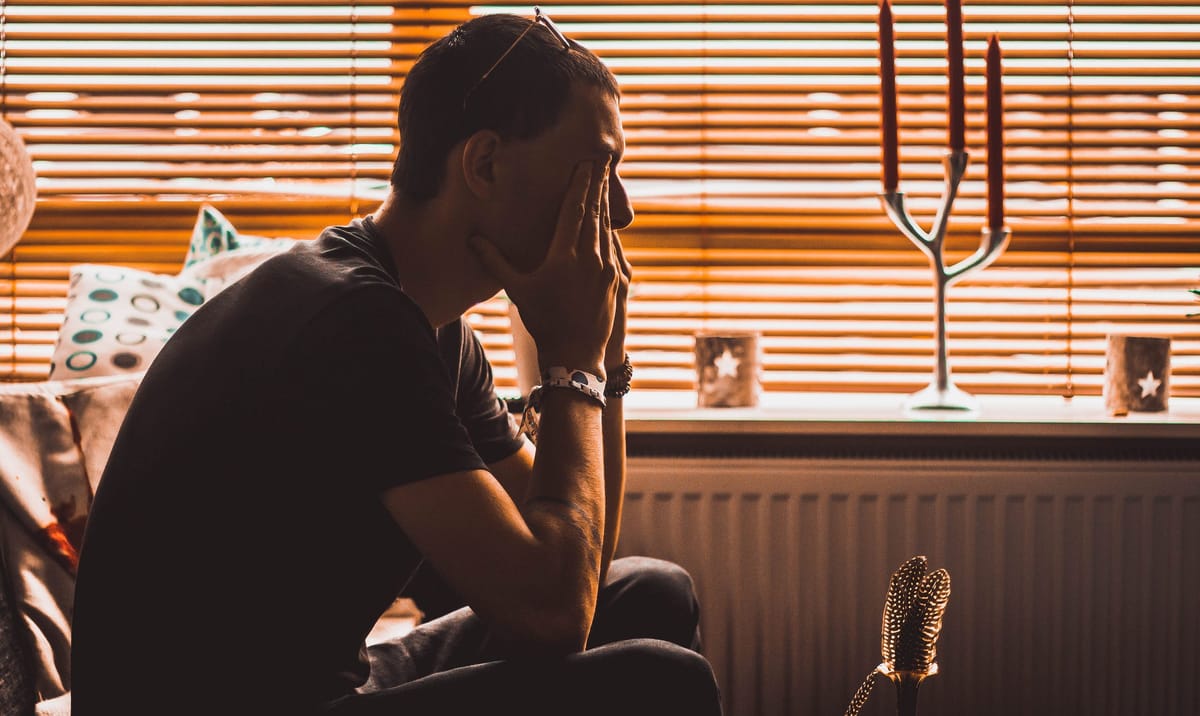I Am an Ex-Pastor, Aspiring Writer, and Struggle with Mental Health

Starting in the summer of 2015 I began experiencing debilitating stomach pain that led to my losing 47 lbs from October to December of that year. Along with stomach issues I often couldn’t get out of bed, I began having panic attacks in public spaces, was constantly on alert, and would have bouts of deep depression followed by crazy spending sprees to cheer me up.
What I thought started out as a stomach bug from hell would later be confirmed as early triggers of significant stress, depression, PTSD, and bipolar II disorder. Though I began experiencing symptoms in 2015 I didn’t learn I was dealing with significant mental health issues until 2020.
I Learned the Hard Way Biblical Counseling is not Mental Healthcare
My five year gap in experiencing debilitating symptoms without knowing the cause happened because I was an Evangelical Pastor during that timeframe. Initially, I thought I was fortunate to belong to a church that was big enough to run its own counseling center. When my primary care doctor (PCP) at the time began testing me for mental health issues and recommended I look into counseling I was relieved to know my church could provide these services.
It didn’t take long for me to realize the advice my PCP and my biblical counselor were giving me did not align. Where my doctor recommended I get more in-depth psychological testing and consider getting on medication to help with my mental health and physical symptoms my Christian counselor emphasized my need for greater faith, an improved prayer life, to fast more, and exercise harder.
Trying to be a good Christian I took my biblical counselor’s advice over my doctor’s only to find I didn’t know how to generate “more faith,” praying didn’t help my thoughts or symptoms, fasting did help some, and exercise wasn’t bad. Finally, I went to a psychiatrist where I was diagnosed with multiple mental health issues and placed on medication.
Though I still experience ups and downs, mentally and physically my quality of life has increased leaps and bounds since starting medication. Despite having former colleagues and church members say foolish things like, “I need medication because I lack faith” or “my mental health issues are just a result of not trusting God” I am SO relieved I sought mental health care outside of a church context. Had I not gone to seek professional help from a trained psychiatrist I don’t know if I’d be able to function in day-to-day life.
Learning to Write When the Mental Health Struggle is Real
In all transparency I currently take Wellbutrin, Cymbalta, Latuda, and Abilfy. Sometimes the meds work AMAZING and I feel like my old self again. During these times writing is such a helpful and healthy outlet. I can read, process what I’m learning, synthesize new lessons, apply them to my life, and write about what I’ve learned and am experiencing in the hopes of helping others.
There’s also my shadow side as I’ve come to call it. Where the monster that lives within my skin rears its ugly head and my meds seem completely unhelpful. In times like these I can’t hardly think let alone pick up a book, come up with new content ideas, or do anything that resembles the creativity process. It’s here that I beat myself up the most. Everything I read on Medium, Google, or watch on YouTube says the same things. If you want to become a good writer you must:
- Write regularly
- Define your niche
- Build an audience
- Connect with your audience
- Provide value for your audience
- Cultivate a writing habit
- Don’t make excuses…
When I’m not doing great mentally I look at that list and think to myself, ‘well, shit…’ I can’t do this, if this is what is required to be a writer I can’t be a writer. Here’s the truth, I don’t doubt the must do things listed above aren’t tried and true, but I don’t believe they are the way for every aspiring writer regardless of life stage or ability.
If you’re someone who loves writing and deals with mental health issues like me I hope you find encouragement in what I’m about to say. We can love writing and be fully present in fighting for our mental health, both can be true, and the journey of walking in the tension of both gives us an even more unique story to tell. I’m going to keep taking my meds knowing some days are better than others. We can accept as our mental health ebbs and flows our creative juices will also soar and wane, but as much as we can we’ll fight for our mental health and enjoy the writing journey.




